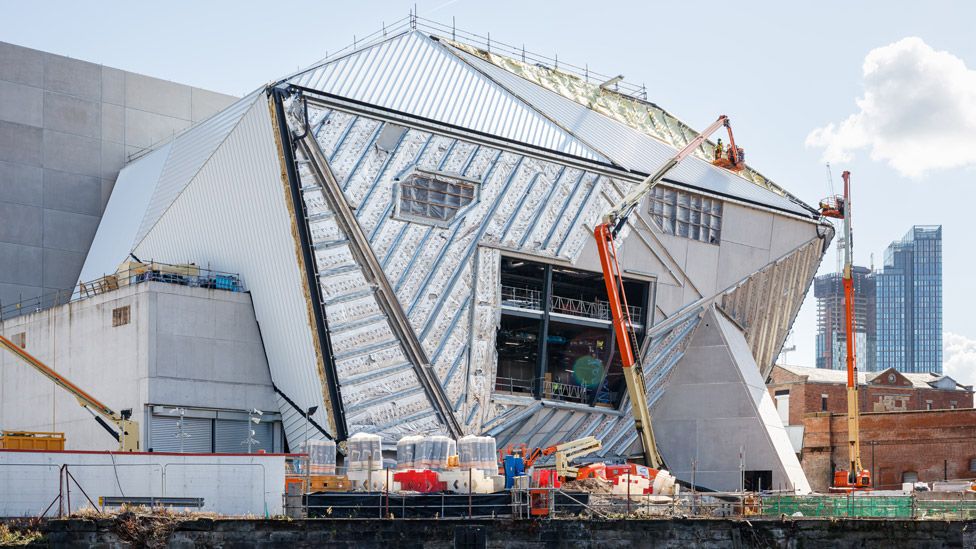ARTICLE AD BOX
 Image source, Pawel Paniczko
Image source, Pawel Paniczko
The venue will open in summer 2023, four years behind the original schedule
By Ian Youngs
Entertainment and arts reporter
A major new arts venue in Manchester has seen its budget rise by another £25m, taking its total cost to £211m.
That is £100m more than the original estimate for the Factory International, due to open next year.
Manchester City Council blamed high inflation as part of the "extremely challenging wider environment the project is being delivered in".
It said "we must not lose sight of" how the benefits "for many years to come will far outweigh the one-off cost".
The venue would create or support 1,500 jobs and bring in £1.1bn to the economy over a decade, the council said.
The rising costs were down to "exceptional levels of inflation, workforce shortages and supply-chain disruption exacerbated by the war in Ukraine," it said.
'Complex design'
A council report added: "The ongoing impacts of Covid-19 - with precautionary measures still in place across the construction industry - and challenges associated with the one-off and complex nature of the design have also contributed to budget pressures."
Factory International, which will feature a 1,600-seat theatre and a 5,000-capacity warehouse space for performances and installations, is due to open next summer, four years behind schedule.
Image source, PA Media
Image caption,Danny Boyle (right) and collaborators Michael Asante, Es Devlin and Kenrick Sandy in the under-construction Factory International
The news of its latest budget increase comes days after the opening line-up was announced, including a major installation by Japanese artist Yayoi Kusama and a live dance version of The Matrix directed by Danny Boyle.
Speaking at the launch, Boyle, from Radcliffe, in Greater Manchester, told BBC News: "The scale of it's just extraordinary. And the fact that Manchester is going to be able to produce its own homegrown, large-scale pieces - and you're talking world-scale pieces - is fantastic."
Councillor Luthfur Rahman said: "It's an audacious project and with that comes challenges, especially when set against a volatile economic backdrop, but the ongoing benefits for many years to come will far outweigh the one-off cost. We must not lose sight of that."
The council will have to cover the extra £25.2m, with £10m coming from a contingency fund and the rest from borrowing.
It had already pledged £55m, with the government providing £105m and another £24m to be found through commercial and philanthropic fundraising over the next five years.
Separately, the council will also fund "increased costs for the fit out of the building, which have also been driven up by soaring inflation by up to £7.8m".
'Vanity project'
It said it hoped to recoup "a significant proportion" of its costs by selling the venue's naming rights.
The building, which will provide a permanent home for the Manchester International Festival (MIF), has already been renamed Factory International after formerly being known as The Factory.
Eddy Rhead, co-director of Manchester-based architecture and design organisation The Modernist Society, questioned how the council was able to "magically find money to prop up this vanity project".
He said: "The Factory and MIF are basically sucking up all the cultural funding for this city. We believe it should have been more evenly distributed and would have borne more fruit if it had been more evenly distributed among smaller, more grassroots organisations across the city.
"As a Manchester taxpayer, it feels that the city council appears to be finding money behind the sofa, metaphorically speaking, whenever it needs it - but when small grassroots cultural organisations need money, apparently there is no money to be had."
Factory International felt "very exclusive", Mr Rhead said.
"It doesn't feel very inclusive. For all the warm words, it seems like they're importing culture into the city as opposed to growing culture within the city."

 2 years ago
33
2 years ago
33








 English (US)
English (US)